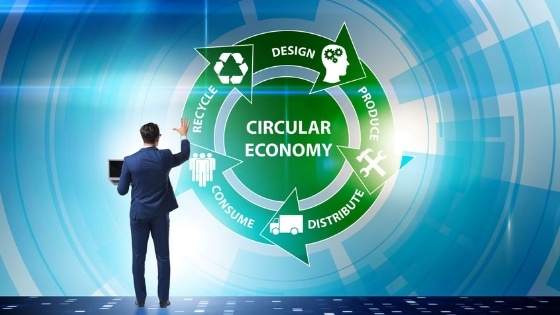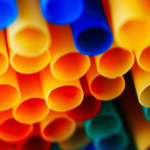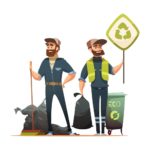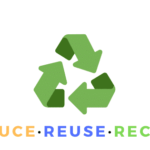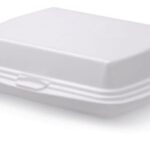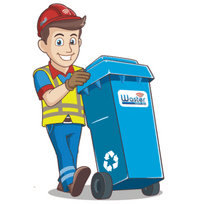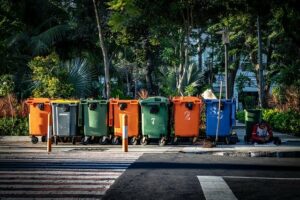Glass Recycling 🍾 – Can Glass Be Recycled In Australia For Businesses?
Energy Disrupter
Glass recycling 🍾: Many businesses produce significant quantities of glass for recycling – businesses such as restaurants, cafes and of course, bottling companies etc.
We expect the usage of glass bottles and containers to really increase over the next few years as people everywhere become aware of the terrible consequences of using plastic bottles and packaging. Plastic bottles and containers have been seen as huge benefits until recently. Initially, we think of them as cheap, light and easy to form. The main issue, of course, stems from the fact that people find them very difficult to effectively recycle, with a global recycling rate of less than 10% of plastic containers in 2019.
Plastic can only be recycled a certain number of times (usually assumed to be less than 10 times) as the polymers weaken each time. This requires a larger and larger amount of new virgin plastic to be added each time.
Glass recycling, on the other hand, can be recycled effectively pretty much indefinitely.
The other benefit of glass packaging include the following:
- non-toxic
- does not break down in to micro plastics
- not consumed by wildlife
There are many good solutions available for glass such as a mixed commingled recycling bin (the yellow bin) that includes bottles, plastic bottles, metal cans etc. Alternatively, you could consider a dedicated crushed glass collection also. In today’s blog, we intend to share with you if businesses have what it takes to recycle their glass items. We also intend to cover the recent question marks placed on the Australian glass recycling industry by the recent Four Corners tv expose.
>Download Now: Free PDF Business Owners Guide To Commingled Recycling Bin Services
A bit about Waster!
Waster offers low cost waste and recycling services such as commingled recycling and cardboard bins as well as general waste and all other services. Check out your bins and pricing options as below:
How do you recycle glass?
So, how is glass recycled in 2021? Glass has effectively been recycled for thousands of years by melting it down and reforming. Think about the images of glass blowing etc.
According to the website: http://www.recycling-guide.org.uk/:
- The consumer throws glass into a recycle bin.
- Glass is taken from the bin and taken to a glass treatment plant.
- The glass is sorted by colour and washed to remove any impurities.
- The glass is then crushed and melted, then moulded into new products such as bottles and jars. Or it may be used for alternative purposes such as brick manufacture or decorative uses.
- Afterwards, the glass is then sent back to the shops ready to be used again.
- Glass does not degrade through the recycling process, so it can be recycled again and again.
The system on paper is very simple and just requires glass to be collected, sorted and cleaned for processing.
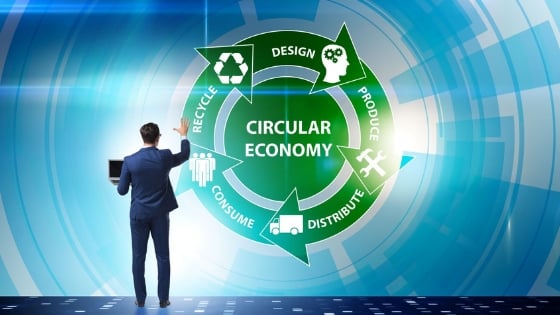
As we see below, in 2021 and given the ongoing recycling crisis, glass recycling is greatly affected.
[embedded content]
Glass recycling: is the industry in crisis?
The recent Four Corners expose cast a less than flattering light on glass recycling and highlighted the tough market conditions. It evens means the question “is glass recyclable?” is up for discussion in 2021!
This is covered in an ABC article here. We quote from the article below:
“Hundreds of thousands of tonnes of glass are being stockpiled and landfilled instead of being recycled, threatening to seriously damage the community’s faith in the billion-dollar recycling industry.
“Key industry insiders interviewed by Four Corners have described an “unsustainable situation” with glass which has “nowhere to go” because there is “no viable market”
“Australia consumes about 1.36 million tonnes of glass packaging per year: wine and beer bottles, glass jars and containers.
“We are back in the dark age and we don’t know what to do. We are receiving more and more glass with nowhere to go,” Polytrade Rydalmere manager Nathan Ung told Four Corners.
“The predicament at the moment is there’s no viable market anymore, there’s nowhere for the glass to go.
“It is currently cheaper to import glass bottles than recycle them. Now, hundreds of thousands of tonnes of close to worthless used glass have been accumulating.”
Whilst this situation does indeed sound worrying, Waster will keep you up to date with future developments.
See our blog on Sydney waste disposal for how glass collections can suit your restaurant. Further, see our blog on heavy bins and overweight charges in general waste services. Also, see our blog on recycling facts Australians need to know.
When will it get better?
The Australian broken glass recycling sector continues to go through some tough times, but we forecast more usage on glass packaging in the future. The Federal and State governments will need to invest significantly in glass recycling systems and processes.
For companies seeking broken glass recycling Sydney, Brisbane, Melbourne etc. keep your practises of waste and recycling separation going as full commingled recycling will come back on stream shortly.
More on recycling glass
If you watched the last series of War On Waste on ABC TV, you will have seen lots of things that would shock you about Australian recycling. The issues in the glass recycle sector were one of those issues, with huge piles of glass being stock piled by waste companies. This is due to there currently being no viable usage for the glass recycle collected. This, of course, covers glass bottles as per those collected in yellow commingled recycling bins and industrial glass also.
In this part of the blog, we take a look at one solution being operated in the NSW town of Lismore and ask, “is it something that can be applied nationwide soon as part of a solution to the ongoing waste management crisis?”
Does a NSW town have a glass recycle solution for the rest of Australia?
We have become accustomed to hearing about huge stockpiles of glass collected by recycling companies that has no recycling outlet.
In many cases, glass makes its way to landfill. This process proves cheaper than simply importing new glass bottles from abroad (such as in so much of the Australian manufacturing space). We have argued that an uptake in manufacturing or using recycled commodities for construction is vital.
[embedded content]
The City Of Lismore has a commitment to reducing waste to landfill and currently crushes glass collected into a sand like substance that be used in making building materials.
“The council’s commercial services business manager Kevin Trustum said they crushed about 6,000 tonnes of discarded glass every year, including glass from the four neighbouring shires.
“If we’re doing 6,000 tonnes, in the metropolitan areas there would be staggering amounts that could be processed for use.
“In those city areas there would be plenty of outlets for using the glass in civil construction.
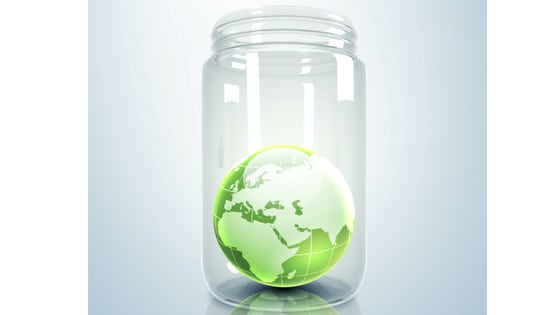

“The glass sand can also be stored for later use, unlike uncrushed glass that the EPA prohibits from stockpiling.
Where can this sand-like material be used?
There are many industrial and construction uses for this material. In Lismore, they have already used the product to build a road:
They used recycled glass from the plant to pave a “500m stretch near Numulgi Hall.
“Since the establishment of the plant, all old glass, crockery and pyrex collected from yellow-lidded recycling bins has been crushed into sand and stockpiled, ready for use in road base.”
Opinion
I argue that in Australia we will need to re-examine what we mean by recycling. Due to the nature of our economy (i.e. where we import nearly all finished goods) and the low population density, recycling glass bottles into new glass bottles etc. looks unlikely due to its unsustainability or lack of economic sensibility on a vast scale.
Using recycled materials as environmentally friendly building materials sounds like a much more promising approach!
Recycling glass bottles and other drinks containers such as plastic bottles and cans becomes more and more of a news and political issue.
We have covered the frankly incredible issue of the growing Great Pacific Garbage Patch in numerous blogs. This is a huge (the size of the US state of Texas) floating garbage patch mostly made up of discarded plastics.
The issue of irresponsible waste management, disposal or recycling of these items is becoming more and more of a pressing issue.
In this section of the blog, we will cover some of the easy solutions for Australian businesses for recycling glass bottles, drinks containers and cans. We will also look at recent legislation changes in the UK, where they plan to introduce a container deposit scheme to incentivise recycling of drinks containers. See our blog on why the Aussie waste management industry is in crisis in 2018.
Easiest solution for recycling glass bottles and other drinks containers
A commingled recycling bin is the easiest and cheapest option for conveniently recycling glass bottles and other drinks containers such as bottles or cans.
Commingled is the yellow bin and most Aussie households should be used to this option from their domestic collections. Commingled recycling is also perfect for cafes, restaurants and a huge number of other businesses. You can significantly reduce your general waste volumes and boost recycling with this bin option.
Please see a short video we produced on what should and what should not go in a commingled recycling bin (mixed recycling) below:
[embedded content]
What if you have larger volumes of glass for recycling?
If you have lots of glass for recycling, a dedicated glass recycling collection sounds the most suitable option for your. In this instance, crushed glass can be collected by a dedicated truck. This will work out cheaper and more convenient for you, depending on the volumes of glass bottles you have.
A glass crushing machine is a great method of recycling glass bottles. You can see one in action in the short video as below:
[embedded content]
Bringing back old ideas
Any of our older readers (or those lucky enough to live in South Australia) will be familiar with container deposit schemes, whereby money or credit is provided when customers return bottles for recycling at specified locations.
The UK is introducing a similar scheme in the coming months as a method of increasing recycling.
“All drinks containers in England, whether plastic, glass or metal, will be covered by a deposit return scheme, the government has announced.
“The forthcoming scheme is intended to cut the litter polluting the land and sea by returning a small cash sum to consumers who return their bottles and cans.
“Similar schemes operate in 38 countries, and campaigners have worked for a decade for its introduction in England.
“Fees vary depending on the size of the bottle or can and many use “reverse vending machines” to automate the return.”
These type of programmes have been proven to deliver great results and really boost overall recycling rates:
“At present just 43% of the 13bn plastic bottles sold each year in the UK are recycled, and 700,000 are littered every day. In Germany, a DRS was introduced in 2003 and 99% of plastic bottles are recycled.”
This is only part of a British strategy to end unavoidable single use plastic by 2042.
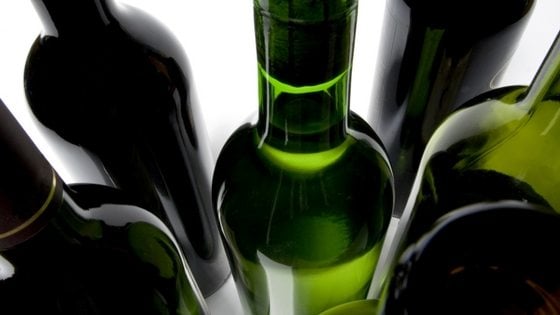

Australian examples
A similar scheme currently operates in South Australia. Meanwhile a new scheme launched in NSW.
You can check out details on the NSW scheme here.
Thoughts
Recycle glass bottles is a very practical and cost saving exercise using commingled recycling bins or for private individuals – container deposit schemes. See a blog giving more detail here. You can save significant sums by recycling items such as glass, bottles and cans – and really help the environment also.
See our blog on how to reduce waste by removing plastic packaging.
Sydney waste disposal: Waster commits to delivering excellent, reliable waste management and recycling bins services to our business, but also to helping you reduce garbage costs and improve your day to day waste management requirements.
We have covered numerous advantages to implementing waste management improvements in our blogs such as:
– Commingled recycling: why a commingled bin is key to recycling
– Recycling cardboard: how to get low cost, convenient collections
– Organic waste solutions: smart food waste management for businesses
Is glass recyclable? How glass recycling can help cafes and restaurants
Waster is a big promoter of commingled recycling solutions for waste removal Sydney – a smartly implemented commingled collection service can reduce your general waste bin requirements and also reduce your costs (as commingled bins tend to be significantly cheaper than an equivalent sized general waste bin – check out our online shop for comparison of rates).
Many cafes and restaurants (as well as other businesses such as wine bars, pubs, conference centres, clubs and hotels) produce a very large amount of glass waste. Think of upmarket restaurants serving wine and drinking water in glass bottles.
The worst case scenario for disposing of this glass would be through general waste as it would be a real waste to simply throw a valuable commodity such as glass away. In addition, it will also increase your requirements for general waste bins (which tend to be more expensive) and the weight of your bins (which will increase your costs, because general waste prices are often based on weight of the bin). See our blog on bin sizes Australia.
Check out our blog on the importance of secure waste disposal to combat ocean pollution.
A broken glass recycling collection can serve to reduce your costs, improve your processes, decrease space taken up by bins and reduce the number of bin collections you require.
If you are currently disposing of glass in commingled bins, you can still make improvements.
See our latest blog on how recycling is being impacted by new trade legislation.
Is glass recyclable? Glass recycling options
Waster can provide you with glass crushing machines that will greatly reduce the space required for the glass. The quiet and safe crushing machine can be positioned at a bar area in a café or restaurant and can be moved around your location as required.
In addition, the machine is extremely quiet and can be used in your restaurant without disrupting your services. The glass crushing machine will reduce the volume of glass by a factor of five – greatly reducing the requirements for bins on site and commingled collections.
It is not uncommon to replace many commingled bin collections per week with a single crushed glass collection – whilst saving considerable money.
A glass crushing machine can be rented from Waster or also bought outright (Waster could also help your business obtain government grants to purchase the machine if it will boost your recycling performance).
Check out a blog on what happens when customers are unhappy in Sydney rubbish removal. Also, check out our prices by accessing our online waste shop by hitting the button below or give us a call on 1300 WASTER.
Conclusion
Recycling glass can be a good step to take as glass is heavy and can make your bin more expensive.
For residents in NSW, you could also use the NSW Return and Earn scheme to recycle compliant bottles and cans and also make some money.
With schemes like this, you can do your bit for resource recovery and reduce potent greenhouse gas production and reduce global warming.


